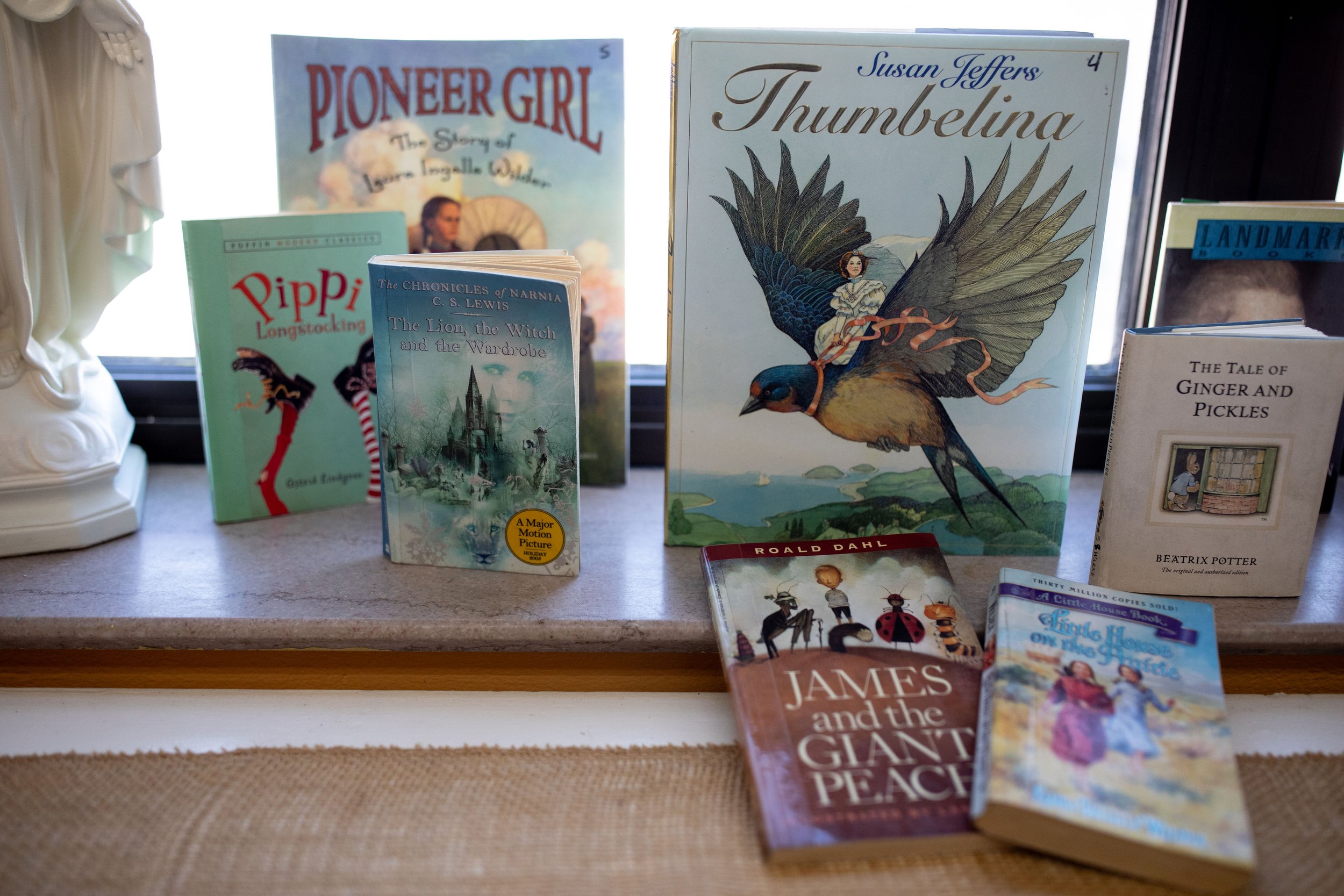
Lower School Reading and Composition
Reading and Composition in our lower school include the following subjects:
· Phonics
· Grammar
· Reading/Classics
· Penmanship
· Spelling
· Writing
Understanding that each of these subjects play a crucial role in forming strong readers and writers, Providence follows both a time-tested and research-proven approach to each subject to ensure students graduate from Providence with the ability to read, write, and speak well. Above all, students leave our school being able to think and reason, namely, they become independent thinkers. This is paramount to a good education because it is not enough to rely solely on those more learned and place our entire trust in others’ judgments. St. Thomas More warned, “I never intend (God being my good lord) to pin my soul at another man’s back, not even the best man I know this day living, for I know not whither he may hap[pen] to carry it.” (Letter to Daughter, Margaret)
Grammar
In Grammar, our students learn definitions for the parts of speech through “jingles that incorporate rhythm, rhyme, movement, and fun.” Through word analysis, students gain a better understanding of the parts that make up a sentence, which provides an excellent foundation for diagramming sentences in the later grades and, of course, an excellent and crucial foundation for writing in general.
Spelling and Phonics
A recent study published by the Australian Journal of Education found “that spelling, grammar and punctuation jointly predict written composition achievement with spelling as the main predictor.” The implications of this “emphasized the importance of spelling in relation to writing and how instruction in spelling, during senior primary school, appears to be critical for written composition improvement.” Knowing the critical importance of spelling, Providence begins spelling in Kindergarten with a phonetic approach, i.e., listening and identifying the different sounds in a word as well as learning basic spelling rules.
There have been trends in recent curricula to cut out phonics entirely and to teach reading from a whole-language approach with the use of sight words. This approach has proven to be disastrous to students’ reading ability, so much so, that most public schools are returning to a more phonetic model. As Castles and colleagues discussed in a recent study showing the effectiveness of phonics, “extensive research has shown that systematic phonics instruction as currently practiced leads to better word-level skills than does whole-language instruction.” Our phonics program includes, “explicit instruction, a multisensory approach to learning, multiple small- and whole-group activities, hands-on games, and active learning opportunities provide students with various opportunities to build foundational skills.”
Reading and Classics
In most grade schools today reading is really only treated as a tool for literacy (ability to read and write). In a classical education, especially for the youngest of students, literature has the much loftier end of forming virtue. Proverbs 22:6 says, "Train up a child in the way he should go: and when he is old, he will not depart from it." Training, however, is more than telling a child to act in a certain way. As Vigen Guroian explains in Tending the Heart of Virture, "Mere instruction in morality is not sufficient to nurture the virtues. A compelling vision of the goodness of goodness itself needs to be presented in a way that is attractive and stirs the imagination. A good moral education addresses both the cognitive and affective dimensions of human nature." In other words, it addresses both the head and the heart. Literature is the key to the heart. A great example of this is fairy tales. They captivate and stir the imagination of students but in a way that isn’t “preachy”, rather showing the world and appropriate responses to its inhabitants (i.e. the way that children should act). William Kilpatrick in Books that Build Character says, "Imagination is one of the keys to virtue. It's not enough to know what's right. It is also necessary to desire to do right." In this way, literature helps us grow in virtue because it teaches students to love virtue. Because literature is so influential, Providence provides its students with the best kinds of stories.



